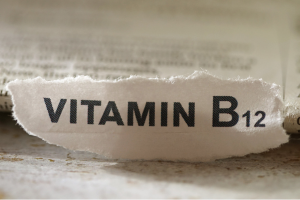10 Signs That You May Have a Vitamin B12 Deficiency

Vitamin B12, also known as cobalamin, is an essential nutrient that plays a crucial role in various bodily functions. It is involved in the formation of red blood cells, nerve function, DNA synthesis, and the metabolism of proteins and fats. Since our bodies cannot produce vitamin B12, we rely on dietary sources or supplements to meet our daily requirements. Deficiency in this vital nutrient can lead to a range of health issues.
10 Common Signs and Symptoms of Vitamin B12 Deficiency
1. Fatigue and weakness: Feeling unusually tired or weak is one of the most common early signs of a B12 deficiency. This fatigue may be accompanied by a lack of energy.
2. Anemia: A B12 deficiency can lead to a type of anemia called megaloblastic anemia, which can cause symptoms such as pale skin, shortness of breath, and dizziness.
3. Numbness and tingling: Numbness, tingling, or a "pins and needles" sensation, especially in the hands and feet, is a common neurological symptom of B12 deficiency.
4. Difficulty walking or balance problems: Some people with severe B12 deficiency may experience difficulty walking, balance issues, or a sensation of unsteadiness.
5. Cognitive and mood changes: B12 deficiency can affect your brain function, leading to memory problems, mood disturbances (such as depression or irritability), and difficulty concentrating.
6. Glossitis: Inflammation of the tongue (glossitis) can occur, leading to a sore, red, and swollen tongue.
7. Mouth ulcers: B12 deficiency can sometimes cause painful mouth ulcers or sores in the corners of the mouth.
8. Vision problems: Although less common, some people may experience vision changes or optic nerve damage due to a severe B12 deficiency.
9. Heart palpitations: Irregular heartbeat or palpitations can be associated with a severe deficiency.
10. Digestive issues: B12 deficiency can be caused by conditions that affect the absorption of the vitamin in the digestive system, such as pernicious anemia or gastrointestinal disorders. Symptoms may include diarrhea, constipation, or other digestive problems.
It is important to remember that these symptoms can be caused by various other medical conditions as well, so it is essential to consult a healthcare professional for a proper diagnosis if you suspect a B12 deficiency. If left untreated, severe B12 deficiency can lead to serious neurological and health problems, so timely diagnosis and treatment are crucial. Treatment typically involves vitamin B12 supplementation through injections, oral supplements, or dietary changes.
Taking an oral supplement is a simple way to address vitamin B12 deficiency. There are many forms, including sublingual tablets, liquid and chewables. Consult with one of our nutrition advisors to find out what type of vitamin B12 is best for you.
Categories
Categories
Humanized Health - NEW!
Learn about personalized health from top experts! Check out our fascinating new shows every week, available as videos, podcasts and transcripts.:
Our Bloggers
-
 Paula Gallagher
Paula Gallagher
Paula is a highly qualified and experienced nutrition counselor on the staff at Village Green.
read more.. -
 Margo Gladding
Margo Gladding
Margo's impressive knowledge base is the result of a unique blend of educational and professional experience.
read more.. -
 Dr. Neal Barnard
Dr. Neal Barnard
Dr. Barnard leads programs advocating for preventive medicine, good nutrition, and higher ethical standards in research.
read more.. -
 Dr. Joseph Pizzorno
Dr. Joseph Pizzorno
Dr. Joseph Pizzorno, ND is a pioneer of integrative medicine and a leading authority on science-based natural medicine.
read more.. -
 Debi Silber
Debi Silber
Debi is a registered dietitian with a master’s degree in nutrition, a personal trainer, and whole health coach.
read more..
SEE ALL OF OUR BLOGGERS


Village Green Apothecary
5415 W Cedar Ln
Bethesda, Maryland, 20814
(301) 530-0800
Toll Free: (800) 869-9159
The information provided on this site is not intended to be a substitute for advice or treatment from a qualified physician, nor is it intended to diagnose or treat a health problem or disease. Consult your physician prior to starting any new health program or if you any questions regarding a medical condition.
© 2025 Village Green Apothecary - All Rights Reserved.



